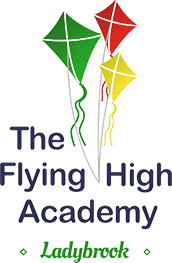Being School Ready
Ready for School
Being ready to start F2 at FHAL is about more than just literacy and numeracy—it’s a holistic concept that includes independence, social and emotional skills, communication, and physical development. Children who are ready for our F2 can manage self-care tasks such as toileting and dressing, share and take turns with others, follow instructions, and approach new situations with confidence.
Foundational literacy and numeracy skills are important, but equally essential are positive attitudes towards learning and the ability to interact well with peers and adults. By supporting all these areas, we help our children make a smooth transition into Reception and set them up for a confident and successful start to their school journey.
Preparing your child for F2 and the learning ahead involves supporting their growth across several key areas, and we are here to guide and support you every step of the way.
Independence and Self-Care
- Toileting: Being able to use the toilet and wash hands independently.
- Dressing: Managing their own clothing, such as putting on a coat and shoes.
- Eating: Using cutlery correctly for school meals or managing their packed lunch.
Social and Emotional Skills
- Confidence: Enjoying new experiences and taking healthy risks.
- Sharing and Turn-Taking: Playing cooperatively and waiting for their turn.
- Expressing Feelings: Communicating needs and emotions effectively.
Communication and Language
- Listening: Following simple instructions.
- Talking: Explaining thoughts and expressing needs clearly.
- Vocabulary: Building a growing vocabulary through activities like reading and conversation.
Physical Development
- Gross Motor Skills: Developing strength and coordination through running, climbing, and ball games.
- Fine Motor Skills: Improving hand strength and dexterity for writing through activities like drawing, using scissors, and threading beads.
How to Support Your Child's Readiness
- Practice Independence: Encourage your child to do things for themselves, such as putting on their coat or tidying up.
- Read Together Daily: Sharing books builds vocabulary and listening skills while making reading a fun, shared activity.
- Play and Learn: Incorporate learning into daily routines, like counting objects, talking about shapes, or recognising their name.
- Develop Concentration: Engage in focused play, such as building with Lego, to help attention and persistence.
- Familiarise with School Routines: Give your child opportunities to spend short periods away from you, such as at a friend’s house, to build confidence in new environments.
If you would like more support or guidance about starting school, please contact Mrs Broadley via our school office. We are always happy to answer questions and provide advice to help make your child’s transition into school as smooth and enjoyable as possible.
These links provide practical advice and tips.

